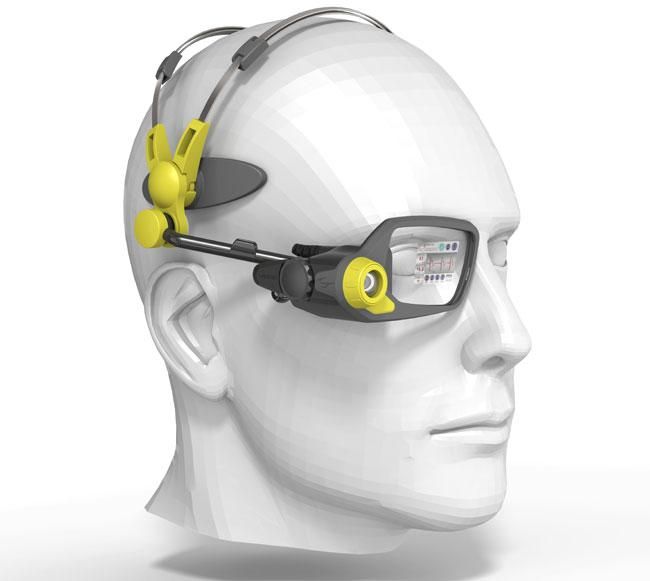Pocketnow-U is a new series where we plan to dig deeper into certain new or emerging technology trends, and try to make some common sense out of them through our thoughts and your comments.
Yesterday we saw coverage of the Epson Moverio BT-100, which is effectively an Android Home Theater device you wear right in front of your eyes. Combining a transparent qHD display, 1GB of ROM, an unknown CPU and quite possibly the least stylish pair of sunglasses available at the Boardwalk, Epson has certainly created a unique "Personal Entertainment Device." We have seen these personal theater products before, with the best contributions from Vuzix, but this time rather than being a TV output for your Personal Media Player (PMP) the device is standalone. While the Moverio was designed and is advertised solely as a personal TV screen, the biggest question here is, how would smart glasses fit your every-day lifestyle?
Epson seems to focus on providing you with a home-theater replacement, and not necessarily a new Terminator or Iron Man vision system like we find in snowboarding goggles with HUD functionality. You can't drive with them, walk with them, use them to see anything better, nor guarantee you won't fall asleep using them. It's supposed to be a TV replacement, but it doesn't seem to improve the experience you currently get with a normal LED TV or even a tablet. If using cheap 3D glasses is already painful in a movie theater, we wonder how Epson plans to shift consumer-viewing habits with this product.
That said, I believe that all it would take is a cellular radio to make this Android-powered theater into a true pair of Smart Glasses for the future. It would make sense if Epson gave it some Layar type Augmented Reality functionality combined with a notification HUD for normal daily use, and TV functionality for whenever you need it.
I am Ironman
In my case, while I have very little use for a mobile personal theater, outside my 6-8 flights each year, a cellular connected variant of the Moverio could have definite application, even now. For example: I keep my phone on me at all times and send/receive several hundred text messages and emails each day. However my ringer is never active as to not disturb those around me, even when I am home at my apartment, and as a result I am dependent upon vibration transferring from my phone to my thigh. This system is not without fail, especially when wearing loose summer shorts, as these vibrations often fail to transfer, so I could remove this problem entirely if I were able to always see these notifications right in front of my eyes. At the same time, Smart Glasses would grant me the ability to check emails, diffuse team issues, read news feeds, and do anything I could ordinarily do with a phone without ever having to shift my focus or remove the phone from my pocket, as I currently do several hundred times a day. The only other challenge there would be to have to wear those things all the time. So while a cellular connected Moverio is less than ideal , it certainly won't earn you any compliments, and might garner a few nicknames, but the idea of utility is there and quite solid.
Sadly, that's not yet the reality. The Moverio BT-100 seeks to combine the extents of available technology to produce a consumer product. Don't get me wrong, it is a significant step toward the futuristic image of Smart Glasses, but I don't see you leaving your tablet at home for a pair of these just yet. It could probably earn the title of something that's nice to have, but it doesn't seem to do anything better than what you already do with other gadgets.
Until we see another significant shrink in circuitry, however unlikely, to rationalize a self-powered face mounted device, we would probably see this technology streamlined into inconspicuous sunglass frames. These frames could serve as a mirrored display, with perhaps a dock software layer, controlled from your phone's capacitive panel. This idea for Mirrored Display Smart Glasses isn't all that outlandish, even with current technology. So while the Moverio won't win any sales records, it is a solid stride, which breaks away from our current slate mold and toward the future of Smart Glasses.
How about you? Would you buy them if Epson priced them right, even if just for the Home Theater functionality?

